第20章 10(1)
We have next to treat of Accusation and Defence, and to enumerate and describe the ingredients of the syllogisms used therein. There are three things we must ascertain first, the nature and number of the incentives to wrong-doing; second, the state of mind of wrongdoers; third, the kind of persons who are wronged, and their condition. We will deal with these questions in order. But before that let us define the act of 'wrong-doing'.
We may describe 'wrong-doing' as injury voluntarily inflicted contrary to law. 'Law' is either special or general. By special law I mean that written law which regulates the life of a particular community; by general law, all those unwritten principles which are supposed to be acknowledged everywhere. We do things 'voluntarily' when we do them consciously and without constraint. (Not all voluntary acts are deliberate, but all deliberate acts are conscious-no one is ignorant of what he deliberately intends.) The causes of our deliberately intending harmful and wicked acts contrary to law are (1) vice, (2) lack of self-control. For the wrongs a man does to others will correspond to the bad quality or qualities that he himself possesses. Thus it is the mean man who will wrong others about money, the profligate in matters of physical pleasure, the effeminate in matters of comfort, and the coward where danger is concerned-his terror makes him abandon those who are involved in the same danger. The ambitious man does wrong for sake of honour, the quick-tempered from anger, the lover of victory for the sake of victory, the embittered man for the sake of revenge, the stupid man because he has misguided notions of right and wrong, the shameless man because he does not mind what people think of him; and so with the rest-any wrong that any one does to others corresponds to his particular faults of character.
However, this subject has already been cleared up in part in our discussion of the virtues and will be further explained later when we treat of the emotions. We have now to consider the motives and states of mind of wrongdoers, and to whom they do wrong.
Let us first decide what sort of things people are trying to get or avoid when they set about doing wrong to others. For it is plain that the prosecutor must consider, out of all the aims that can ever induce us to do wrong to our neighbours, how many, and which, affect his adversary; while the defendant must consider how many, and which, do not affect him. Now every action of every person either is or is not due to that person himself. Of those not due to himself some are due to chance, the others to necessity; of these latter, again, some are due to compulsion, the others to nature. Consequently all actions that are not due to a man himself are due either to chance or to nature or to compulsion. All actions that are due to a man himself and caused by himself are due either to habit or to rational or irrational craving. Rational craving is a craving for good, i.e. a wish-nobody wishes for anything unless he thinks it good. Irrational craving is twofold, viz. anger and appetite.